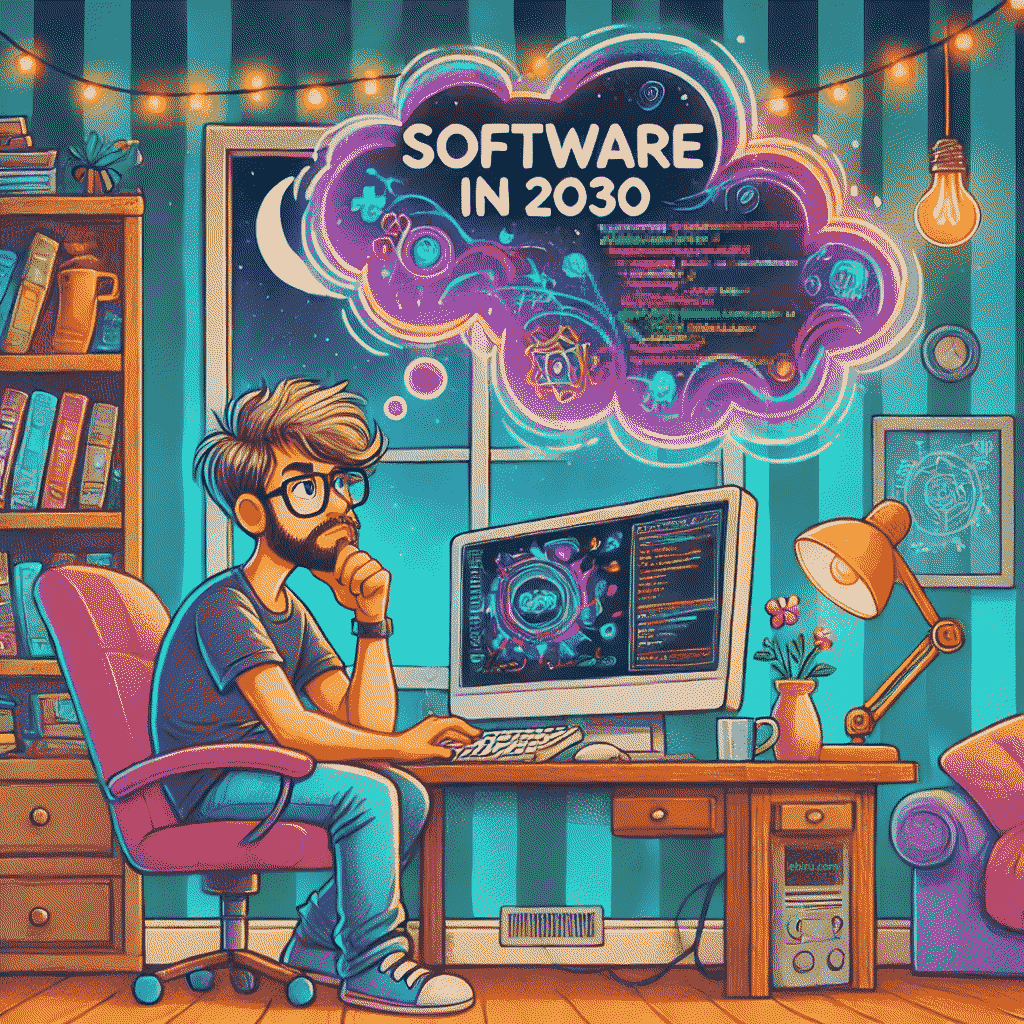The Next 5 Years of Software 💻✨
What groundbreaking innovations will define the next era of technology? In an industry marked by constant evolution, software is on the cusp of a major transformation. Recent breakthroughs in artificial intelligence (AI), cloud computing, and automation have turbocharged innovation, setting the stage for a thrilling five years ahead for developers, businesses, and users alike.
As we peer into the future, certain trends and shifts are set to redefine how we work, create, and live. Let’s dive into what the next half-decade holds for the world of software.

The next 5 years in software...
Software Is Evolving at a Rapid Pace
Technology has always advanced in leaps and bounds, but the current pace of innovation is unprecedented. The convergence of machine learning, quantum computing, and augmented reality is paving the way for transformative breakthroughs.
From reimagining how we work and entertain ourselves to solving complex global problems, software is at the core of this revolution. Companies that fail to adapt risk being left behind, while those that embrace these changes have the potential to thrive in a competitive landscape.
Recent Technological Breakthroughs Are Driving Change
Advancements like generative AI, edge computing, and blockchain scalability are broadening the horizon for software applications. Generative AI is transforming industries, revolutionizing tasks like content creation and coding by making development cycles faster and more efficient.
Meanwhile, edge computing is enabling low-latency solutions for IoT devices and autonomous systems, creating a new wave of possibilities. These breakthroughs are not just energizing markets - they’re redefining what’s possible in software innovation.
Prediction 1: Remote Jobs Will Attract the Best Talent
The pandemic accelerated the shift to remote work, but its long-term impact is only beginning to unfold. Over the next five years, remote-first companies will lead the way, offering unparalleled flexibility and access to a global talent pool.
Developers from rural areas or underserved markets will compete on equal footing with those in major tech hubs like Silicon Valley. Organizations investing in seamless communication tools, robust security measures, and virtual collaboration platforms will attract top-tier talent.
As an article from Scott Lincicome highlights, remote work has shifted from a rare perk to a new standard across industries, emphasizing flexibility and innovation in the workplace.
Prediction 2: Nimble Startups Will Disrupt Industry Giants
The agility of startups has always been their superpower, but the next five years will witness even more trailblazing triumphs of underdogs disrupting industry titans. Leveraging AI, decentralized computing, and open-source communities, small teams will outpace larger competitors in niche markets.
With democratized development tools and new funding avenues like crowdfunding and venture capital platforms, startups will thrive in disrupting traditional giants. Large companies will need to innovate rapidly to stay competitive.
This trend is already evident in the AI sector, where startups like OpenAI challenge the dominance of tech giants in areas like natural language processing. Startups in the AI sector are demonstrating how small, nimble teams can compete effectively against larger organizations.
The rise of solopreneurs - individual entrepreneurs building highly successful businesses on their own - further highlights the shifting dynamics in the business landscape. Many solopreneurs are leveraging innovative strategies to surpass $1 million in revenue, redefining success without large teams or traditional infrastructure. This evolution underscores the opportunities available to individuals embracing innovation and niche markets.
Prediction 3: Soft Skills Will Play a More Critical Role
As software teams become more diverse and globally distributed, soft skills such as communication, empathy, and adaptability will be more critical than ever. These skills will be the glue that holds cross-functional teams together in tackling complex projects.
Whether addressing AI ethics, designing user experiences, or aligning multiple stakeholders, developers who combine technical expertise with interpersonal finesse will be indispensable to their organizations.
Prediction 4: The Death of the 5-Day Work Week
The traditional 9-to-5, five-day work week is under scrutiny, especially in the software industry. Over the next five years, we may see this model replaced by four-day work weeks, asynchronous schedules, and results-oriented approaches.
These changes aim to enhance productivity, reduce burnout, and appeal to employees seeking better work-life balance. As progressive companies prove the viability of these models, we’re likely to see widespread adoption industry-wide.
If you are on the hunt for your next opportunity and want to commit to a 4-day work week, try checking out 4dayweek.io which offers job opportunities with a 4 day work week!
What Do You Think Will Change the Industry in the Next 5 Years?
The software industry thrives on speculation and experimentation. Will low-code and no-code platforms enable non-developers to create sophisticated applications? Will there be an ethical reckoning as AI systems grow more autonomous? Will we ever not need loading screens for AAA games?
What’s certain is that the future will bring both challenges and opportunities. The next five years will test our adaptability, creativity, and resilience - pushing us toward a software landscape that’s as dynamic as it is exciting.
